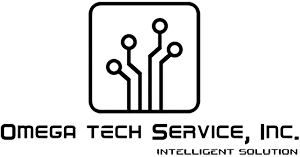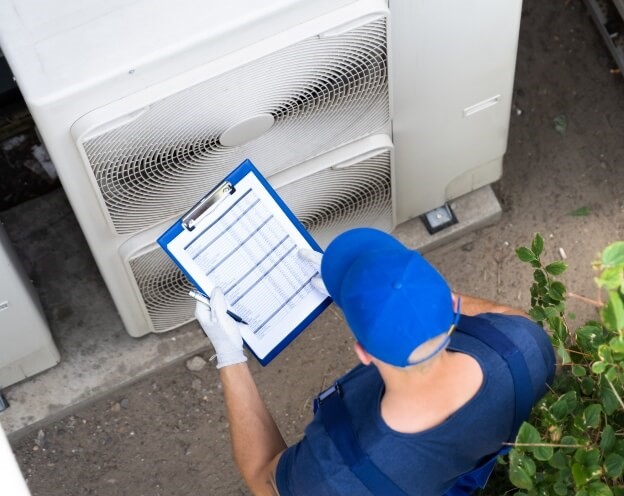As the hot season arrives, an air conditioner becomes a true lifesaver from the scorching heat. However, intensive use during high temperatures can lead to system overload, reduced performance, and even breakdowns. To ensure your climate control equipment lasts a long time and operates reliably, it’s important to follow specific usage guidelines.
Why Does an Air Conditioner Suffer in the Heat?
High ambient temperatures force the air conditioner to work under increased strain. The compressor has to compress the refrigerant more intensely, while the heat exchangers (radiators) operate with reduced heat dissipation efficiency due to the hot outside air. If these factors are compounded by dirty filters and heat exchangers, incorrect settings, or low refrigerant levels, the risk of overload rises significantly.
Signs of Air Conditioner Overload:
It’s important to recognize the signals your device gives before a serious malfunction occurs.
Key signs of overload include:
- Reduced cooling efficiency: the air conditioner runs, but the air isn’t cold enough.
- Unusual noises or vibrations during operation.
- Frequent automatic shut-offs.
- Unpleasant odors.
- Frost or ice on the pipes of the indoor or outdoor unit.
Ignoring these symptoms can lead to compressor failure — the most expensive part of the air conditioner.
Key Rules for Operating an Air Conditioner in the Heat:
Following these simple rules can help avoid overload and extend your air conditioner’s service life:
Set the Temperature Correctly:
Don’t rush to set the lowest possible temperature. The optimal difference between indoor and outdoor temperatures should not exceed 7-10°C (about 13-18°F). The recommended comfortable indoor temperature in summer is 72-77°F (22-25°C). Rapid temperature drops put excess strain on the compressor. Lower the temperature gradually, by 1-2 degrees per hour.
Keep Windows and Doors Closed:
While the air conditioner is running, the room should be sealed to prevent warm air from entering. It’s best to ventilate the space either before turning on the air conditioner or after turning it off.
Use Curtains and Blinds:
Direct sunlight significantly heats the room, increasing the load on the air conditioner. Use heavy curtains, blinds, or shutters to block the sun.
Clean the Indoor Unit Filters Regularly:
Dirty air filters obstruct airflow, reduce cooling efficiency, and may cause the evaporator to freeze. Clean the filters at least once every two weeks, or more often if the system is used intensively or if pets are present.
Ensure Free Airflow Around the Outdoor Unit:
The outdoor unit must be well-ventilated. Make sure there are no objects, plants, or other obstructions around it that could block airflow. Clean the outdoor unit regularly from dust, fluff, and debris.
Avoid Using the Air Conditioner in Extreme Heat:
Most residential models are designed to operate within a certain range of outdoor temperatures. In extremely high heat (above 104-113°F or 40-45°C), the air conditioner may become ineffective or even suffer damage. On such days, it’s better to use alternative cooling methods or operate the unit for short periods only.
The Importance of Professional Maintenance:
Regular technical maintenance by professionals is key to your air conditioner’s long and reliable operation, especially during peak load periods. Professional maintenance includes:
- Comprehensive cleaning of all units and heat exchangers.
- Checking refrigerant levels and refilling if necessary.
- Diagnosing all components and electrical connections.
- Inspecting the drainage system.
These procedures help detect and eliminate potential issues before they cause major failures or overload the system during hot weather.
If you need preventive maintenance for your air conditioner in San Diego, contact Omega Tech Service. Our specialists will conduct a full diagnostic and maintenance of your system to ensure it works efficiently and reliably, even in extreme heat.
Additional Tips to Improve Efficiency:
- Use “Fan Mode” Before Cooling
If the room is very hot, first turn the air conditioner to fan mode for a few minutes. This helps push out hot air and reduce the initial load on the compressor when cooling starts. - Avoid Running the Fan on Low Speed During Intense Heat
In very high outdoor temperatures, running the indoor unit’s fan at low speed may cause the evaporator to freeze. - Insulate the Room
Good thermal insulation of the walls, roof, and windows helps maintain coolness indoors and reduces the load on the air conditioner.
Following these simple but effective usage tips will help you avoid air conditioner overload in hot weather, ensure reliable operation, extend its service life, and maintain a comfortable indoor climate in your home or office.
Did you like this article and find it helpful? Share the link with your friends!
- Published on





